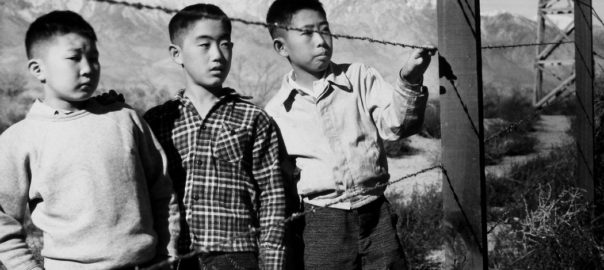The California State Assembly voted unanimously today to pass a bill that formally apologizes for its role in the WW2 incarceration of approximately 120,000 Japanese Americans in camps throughout the West Coast and the Pacific Northwest. The bill apologized for all of the state’s past actions related to incarceration, including for its passage of anti-Asian land laws and other discriminatory laws that contributed to anti-Asian disenfranchisement and racist hysteria in the state in the decades leading up to Executive Order 9066 and the forcible imprisonment of Japanese Americans in camps in 1942.
The bill, introduced by State Assembly member Albert Muratsuchi, reads:
Resolved by the Assembly of the State of California, That the Assembly apologizes to all Americans of Japanese ancestry for its past actions in support of the unjust exclusion, removal, and incarceration of Japanese Americans during World War II, and for its failure to support and defend the civil rights and civil liberties of Japanese Americans during this period
Now considered a major historic example of federal violation of American civil rights, Japanese Americans were forcibly displaced — and families sometimes separated — into makeshift camps under armed military guard. For years, detainees were not allowed to leave the camps except under special circumstance, all due to unfounded, racist suspicion of Japanese American loyalty to the US government. Upon their release, many former detainees found their property ransacked and their possessions stolen. In total, an estimated over $100 million worth of property was lost.
In the decades after the camps closed, Japanese Americans launched a movement to win redress and reparations for Japanese American incarceration. In the 1980’s and early 1990’s, the movement successfully lobbied the federal government for a formal apology, as well as $20,000 reparations to surviving incarcerees. Canada also formally apologized for their incarceration of Japanese Canadians.
Coinciding with yesterday’s Day of Remembrance — a day marking President Franklin D. Roosevelt’s signing of Executive Order 9066 and that is now used to commemorate Japanese American incarceration history — California has now voted to become the first state to issue its own formal apology for its significant role in WWII Japanese American incarceration. Two of the largest Japanese American incarceration camps — Manzanar and Tule Lake — were located in California, and Tule Lake was known for its especially harsh conditions, and was where incarcerees deemed “disloyal” or “disruptive” were sent.
California has now voted to become the first state to issue its own formal apology for its significant role in WWII Japanese American incarceration.
Assembly member Muratsuchi drew parallels between Japanese American incarceration and the current crisis at the US-Mexico border, which has seen thousands of migrants and refugees imprisoned in makeshift camps.
“We’re seeing striking parallels between what happened to Japanese Americans before and during World War II and what we see happening today,” Mursatsuchi told LAist. “I introduced HR-77 for California to lead by example,” he said, “and to show that we can learn the lessons of history — so that history doesn’t repeat itself.”

